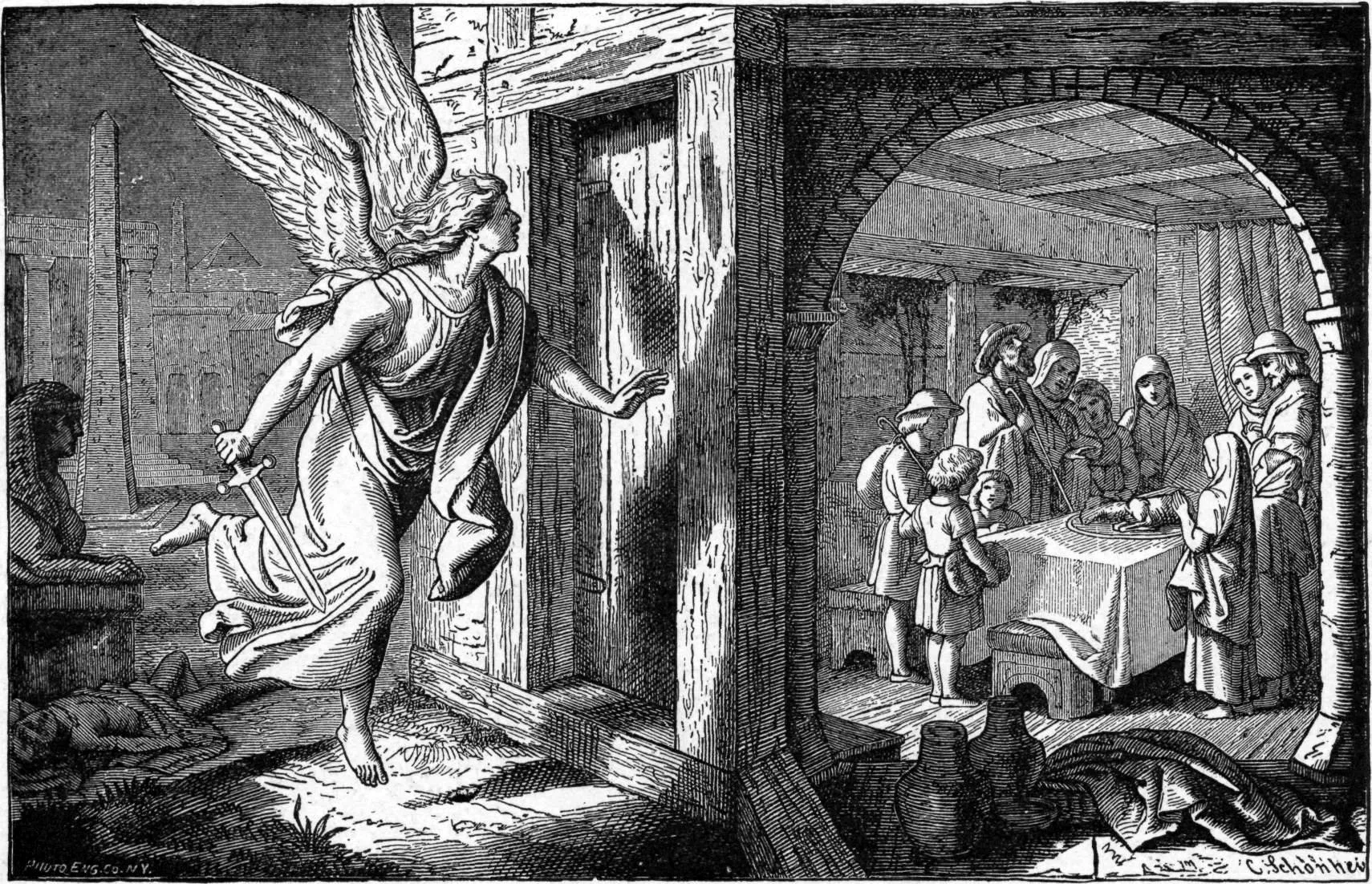For centuries, the story of King David has captured the imaginations of believers and historians alike. His influence in Israelite culture remains undeniable, and his reign marks a critical turning point in biblical history. One of the most intriguing aspects of David’s story is his death – how and why did this legendary king of Israel meet his end? In this article, we will explore the circumstances surrounding King David’s death, as well as its historical context and significance. Read on to discover more.
King David’s Life and Reign

King David is one of the most prominent figures in the Bible, known for his bravery, cunning, and faithfulness to God. He was arguably the most famous king of Israel and was responsible for building the nation into a powerful kingdom.
David was born in Bethlehem in the 11th century BCE and was the youngest of eight sons. As a teenager, he was chosen by the prophet Samuel to be the successor to King Saul, who had fallen out of favor with God. David quickly proved himself as a skilled warrior, defeating the Philistine giant Goliath with only a slingshot and a stone.

David became a close friend and advisor to King Saul’s son, Jonathan. But Saul soon became jealous of David’s popularity and began to see him as a threat to the throne. David was forced to flee and spent several years hiding in caves and living as a bandit.
With the help of his loyal followers, however, David eventually amassed a large army and was able to claim the throne of Israel. He established Jerusalem as his capital and began a reign that would last for 40 years.
During his reign, David was known for his military conquests, including the capture of Jerusalem from the Jebusites and the defeat of the Philistines. He also established a powerful dynasty, and his son Solomon would later become one of the most famous kings of Israel.
Despite his many accomplishments, David was not without his flaws. He committed adultery with Bathsheba, the wife of one of his soldiers, and arranged to have her husband killed in battle to cover up his sin. He also struggled to maintain control over his own family, with his sons leading rebellions against him and fighting amongst themselves.
David died at the age of 70, after ruling Israel for 40 years. His death marked the end of an era in Israelite history, but his legacy would live on for centuries to come.
The Cause of King David’s Death
King David, the iconic Israelite monarch, is considered to be one of the most significant biblical figures in the Old Testament. His reign not only contributed to the establishment of the united kingdom of Israel and the line of Davidic covenant but also influenced the religious beliefs and practices of the Jewish community. However, the circumstances surrounding his death are still shrouded in mystery, and there is no consensus among scholars about the cause of death.
According to the Bible, King David died of old age at the age of 70 after ruling for 40 years. In 1 Kings 1:1-4, we see a frail and weak David struggling to keep warm, prompting his servants to find a young woman named Abishag to keep him company and provide him with warmth. However, this arrangement raised concerns among David’s sons about Abishag’s role in the succession process.
Additionally, the Bible records some of David’s famous last words in 1 Kings 2:1-10. He instructs his son and successor, Solomon, to be strong and keep the commandments, to take revenge on Joab for his many killings and to honor Barzillai for his loyalty. While some interpret these words as a sign of David’s impending death, others see them as typical advice from a father to a son, particularly one who would take over the throne as king.
Despite the ambiguity surrounding King David’s death, historians and scholars have offered various theories over the years. Some believe that David may have died of natural causes related to age, such as heart failure, kidney failure, or stroke. Others speculate that his death may have been a result of an underlying medical condition or illness.

One theory that has gained considerable traction is that David may have died of poisoning. This theory is supported by accounts in some Jewish sources, including the Talmud. According to these sources, David’s son, Adonijah, conspired with a priest named Abiathar and Joab, the commander of David’s army, to poison David with a toxic herb found only in the region of Tekoa. However, there is no concrete evidence to support this theory, and it remains a subject of debate among scholars.
Regardless of the cause of his death, King David’s legacy remains significant. His death marked the end of an era and the beginning of a new reign under his son Solomon. David’s coronation and dynasty set the tone for Israelite monarchy and influenced the prophetic dimension of Judaism. His death rituals and burial are still celebrated and observed today, signifying the importance of honoring the deceased in Israelite culture.
In conclusion, the cause of King David’s death remains a mystery, despite numerous theories and speculations. However, his death marked an end to one of the most influential reigns in Israelite history and set the stage for the succession of a new dynasty. His legacy, including his contribution to Israelite culture, religious beliefs, and practices, continues to live on today.
Biblical Account of King David’s Death
When King David died, it marked the end of an era and the beginning of a new dynasty. According to the Bible, David had been the king of Israel for 40 years. During his reign, he had achieved numerous triumphs in battle and had secured Jerusalem as the capital of Israel. However, towards the end of his life, David faced several challenges.
According to the book of Kings, King David was in his old age and had become weak. His son, Adonijah, had begun to declare himself king, causing a great deal of unrest among the people of Israel. In response, Bathsheba, one of David’s wives, went to him and pleaded with him to name his son, Solomon, as his successor. David agreed, and he arranged for Solomon to be anointed as king in Jerusalem.
Despite the anointing, Adonijah continued to press his claim to the throne. He held a coronation banquet, inviting most of the king’s sons and officials. However, they did not attend, and instead showed their loyalty to Solomon. When David’s officials heard about Adonijah’s actions, they went to David and informed him. In response, David quickly had Solomon anointed as king, and Adonijah fled to the altar, seeking sanctuary.
« Unveiling the Meaning of “The Lord is My Banner” in the Bible
Unpacking the Mystery of Melchizedek: Priest, King, and Type of Christ »
In the Bible, David’s final moments are dramatic. He calls for Solomon to come to him, and he charges him to be a good and just king. He also gives Solomon advice on how to deal with some of his enemies. Finally, David dies, and the Bible reports that he was buried in the City of David.
King David’s death was hugely significant for the Israelites. It marked the end of a long and eventful reign and the transition to a new era. David’s legacy lived on through his descendants, including Solomon, who ruled for many years. Additionally, the promise of the Davidic covenant was fulfilled through the line of Jesus Christ, making David one of the most famous figures in the Old Testament.
Significance of King David’s Death
King David’s death was a significant event in Israelite history. He was not only a famous biblical figure but also a monarch who established a dynasty and a covenant with God that played a significant role in shaping the Israelite nation. The following sections explore the significance of King David’s death in more detail.
The End of a Reign
King David was one of the Israelites’ most prominent monarchs, ruling for 40 years and consolidating a united kingdom with Jerusalem as its capital. His death marked the end of his reign and the beginning of a new era. The succession of a new king was a significant event that would have political, social, and religious implications.

Establishment of the Davidic Dynasty
David’s covenant with God established the Davidic dynasty, which meant that his descendants would reign over Israel. King David’s death, therefore, marked the beginning of a new dynasty and the continuation of his legacy in his successor. The coronation of David’s son, Solomon, as the next king was a crucial event in Israelite history, and it is documented in the Bible’s Old Testament.
Prophecy and Fulfillment
The biblical account of King David’s life and death is essential to Jewish and Christian history. King David was a crucial figure in God’s plan, with many prophecies pointing to his life, death, and dynasty. For example, the prophet Samuel anointed David as the future king of Israel while King Saul was still alive. King David’s rise to power and eventual death fulfilled these prophecies, making him an even more significant figure in Jewish and Christian tradition.
Mourning and Death Rituals
Israelite culture had particular mourning and death rituals that reflected their beliefs and customs. King David’s death would have been a significant event that would have triggered mourning and ritualistic practices. The Bible documents how King David’s death was mourned, and his body was prepared for burial with reverence and respect.
Legacy and Significance Today
King David’s legacy extends beyond the Israelite nation and has influenced religious and political leaders for centuries. His reign and dynasty were seen as a golden age in Israelite history, and many rulers sought to emulate him. His legacy also extends to the Davidic covenant, which is seen as a symbol of God’s faithfulness to his people.
In conclusion, King David’s death was a significant event in Israelite history that marked the end of a reign, the establishment of a dynasty, the fulfillment of prophecy, and the continuation of his legacy. His death triggered mourning and death rituals that reflected Israelite culture and beliefs. King David’s legacy extends beyond his death and continues to play a significant role in religious and political discourse.

Mourning and Death Rituals in Israelite Culture
Death is a universal experience, and every culture has its unique customs and rituals to bid farewell to their loved ones. The Israelites also had their mourning and death rituals, which they strictly followed. Interestingly, the biblical account of King David’s death also sheds light on these traditions.
Here are a few customized mourning and death rituals that the Israelites followed:
-
Tearing of Clothes – Israelites were known for tearing their clothes as a sign of grief. They believed that ripping their clothes was a symbolic act of tearing their hearts. This tradition of tearing clothes is still prevalent in some of the Jewish communities today.
-
Sitting on the Ground – Sitting on the ground was another popular symbol of mourning in Israelite culture. This practice showed a person’s humility and the depth of their grief.
-
Covering Head – Israelites also covered their heads with a garment called ‘sackcloth’ as a sign of mourning and penance. This garment was made of rough material and was usually dark in color. This tradition of covering one’s head is still a prevalent practice in some Jewish communities.
-
Burial Customs – The Israelites believed in burying their dead as soon as possible. They viewed this as a way to show respect to the deceased and also for hygienic reasons. The burial place was also significant and had to be in a pure and clean location. Today, Jewish graves are typically headless.
-
Tombstones – Israelites also had a practice of erecting tombstones on the graves of their loved ones. This tradition enabled the future generations to remember and honor the deceased.
These traditional mourning and death customs hold a significant cultural and religious value in Israelite history. When King David died, the Israelites mourned his death for seven days, following these rituals.
It is interesting to note that these mourning and death customs have been passed down through generations and still hold relevance in some Jewish communities. They serve as a connection to the past and a reminder of the traditions and beliefs that shaped their culture.

In Conclusion, the Israelites had unique customs and rituals for mourning and death. These traditions were an integral part of Israelite culture and were followed with utmost sincerity and respect. Even today, these traditions continue in some Jewish communities, keeping the historical significance of King David’s death and the Israelites’ culture alive.
The Legacy of King David’s Death and Its Historical Context
King David’s death was a momentous event in Israelite history. His death marked the end of a long and prosperous reign that saw the unification of Israel under one monarchy. David had become a famous figure, not only in Jewish and Israelite history, but also in the wider world of history and religion.
After David’s death, his son, Solomon, succeeded him as king. Solomon went on to become one of Israel’s most successful monarchs, but his reign was not without its struggles. The surrounding nations, particularly Egypt and Assyria, began to exert more influence over Israel, and the kingdom was eventually divided into two kingdoms after Solomon’s death.
The circumstances of David’s death remain a topic of debate among scholars and historians. The Bible describes David as having died at an old age, but there are other theories about the cause of his death. Some speculate that David may have succumbed to an illness, while others suggest that he may have been killed in battle. There are even those who speculate that David was assassinated by one of his own sons.
Despite the uncertainty surrounding David’s death, there is no doubt that his legacy continues to influence Jewish and Israeli culture today. David’s reign was marked by a deep devotion to God and a commitment to the Davidic Covenant, which promised that David’s descendants would always rule Israel. This covenant became one of the central tenets of Jewish faith and is still celebrated today in Jewish tradition.

David’s death was also significant in terms of the mourning and death rituals that were practiced in Israelite culture. The Bible describes how David’s body was prepared for burial and how his funeral procession was accompanied by a grand display of mourning and grief. These traditions were emblematic of the deep respect and reverence that the Israelites had for their monarchs and their commitment to upholding the Davidic dynasty.
In conclusion, the legacy of King David’s death continues to shape Jewish and Israelite culture to this day. Although the cause of his death remains a topic of speculation, there is no doubt that he was a hugely influential figure in Israelite history. The mourning rituals and devotion to the Davidic Covenant that were established after his death continue to be celebrated by Jews all over the world, demonstrating the enduring legacy of this famous biblical figure.

















